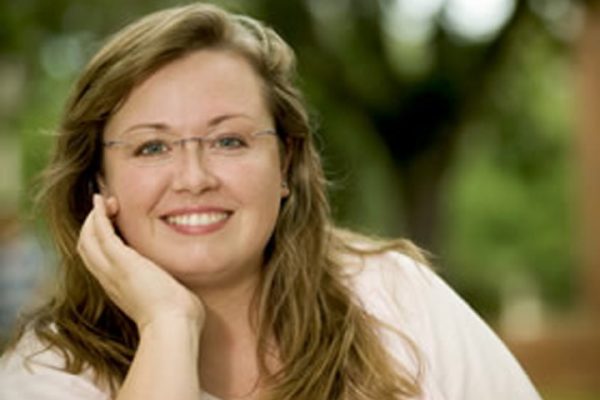
“I'm always willing to pass along the tips I've learned over the years, the things you just don't get from a graduate manual.”
When Kristin Carlton returned to school to finish her bachelor’s degree, one of her professors kept telling her to go on to graduate school.
“I thought she had three heads,” Carlton said. “I didn’t have a lot of academic confidence at the time.”
She had finished an associate’s degree but hadn’t kept going. “When I first went away to school, college was not what I thought it would be. I found it hard to study because I had never had to. It was a wake-up call.”
But seven years ago, she took a course, then another one. Today, Carlton is working on her doctorate in mass communication in the College of Communication and Information at Florida State University.
Her academic experience gives her perspective when she mentors and teaches students. In fact, the International Communication Association named her Outstanding Graduate Teaching Assistant in 2008.
“Her students appreciate the guidance and encouragement that she provides to each and every one of them,” said Amy Magnuson, health promotion director and nutritionist at Thagard Student Health Center.
Carlton works part-time at the health center, where she analyzes data to help develop new programs, including one showing the influence of television and movies on the use of alcohol. The July presentation for the C.A.R.E. Summer Bridge Program was designed to help ease student adjustment to college life at Florida State.
Carlton, a native of Lewiston, Maine, was drawn back to school when her then-fiancé was studying for his law degree. After she graduated from the University of Delaware, she spent three hours visiting another university, then three days at Florida State. “It felt like home,” she said. “People were really, really nice.”
In what she terms “serendipity,” her last appointment was with Professor Donna Marie Nudd, who made final recommendations on assistantships for master’s students in the College of Communication and Information.
Carlton, who already had a full-ride offer from Delaware, was headed home when Nudd called to offer funding. “She told me I was very gregarious for a Yankee,” Carlton said. “I asked, ‘Is that good or bad?’
“She said, ‘That’s good. You’re talkative, you’re extroverted and I think that’s wonderful.'”
It didn’t hurt that her husband, Dan Carlton, a seventh-generation Floridian, had earned his undergraduate degree in Sport Management at Florida State in 1997. “I kept asking for his opinion, but he said I needed to make the decision,” she said. As a precaution, though, he took the Florida bar exam. He now works as an attorney with the Florida Commission on Ethics.
Carlton said her husband was “ecstatic” to be able to go to Seminole football games, but she primarily based her decision on the research-based curriculum and professors.
“We have a huge opportunity being a research institution, but teaching is just as important and we get students engaged in the research,” Carlton said.
For her dissertation, she’s studying the impact violent video games have on people who play them for pleasure. “What happens in brains to allow them to unplug from the real world and plug into a surreal world and enjoy it? If we know what happens, we can mitigate negative effects that might occur. And if there are positive effects, we want to find out what those are as well,” she said.
In addition to her communication studies and her work at the Thagard Student Health Center, Carlton took enough classes in the College of Education to earn a certificate in educational measurement statistics.
Magnuson said Carlton shares her knowledge and skills at program evaluation with students and colleagues. Carlton has been instrumental in several projects, including the 10,000 steps walking program and data for the HIV and nutrition clinics. Faculty and staff refer new graduate students to her.
“I’m always willing to pass along the tips I’ve learned over the years, the things you just don’t get from a graduate manual,” Carlton said. “I had the opportunity to talk to older graduate students when I was new to the department and it helped.”




